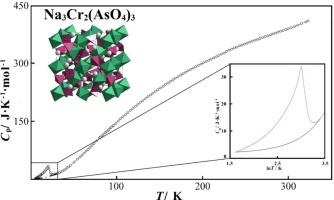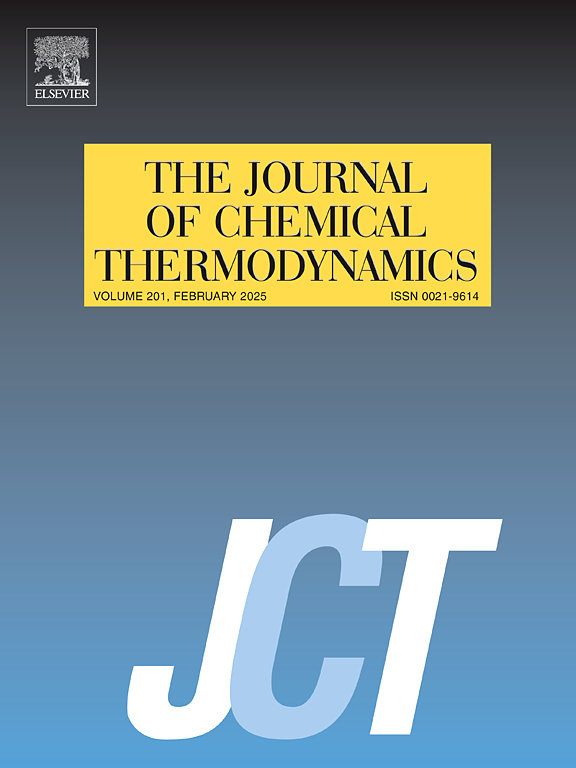Thermodynamics of Na3Cr2(AsO4)3 with garnet structure
IF 2.2
3区 工程技术
Q3 CHEMISTRY, PHYSICAL
引用次数: 0
Abstract
In this work the heat capacity of the garnet-structured Na3Cr2(AsO4)3 was first investigated. Measurements were performed in the range of T = (5 and 323) K using a precise adiabatic vacuum calorimeter. The phase purity and composition homogeneity were verified by X-ray diffraction analysis with Rietveld method calculations and X-ray microanalysis. The have been calculated using experimental data from T→0 to 323 K.

具有石榴石结构的 Na3Cr2(AsO4)3 的热力学
本研究首次对石榴石结构的 Na3Cr2(AsO4)3 的热容量 Cp,mo=f(T) 进行了研究。测量是在 T = (5 和 323) K 的范围内使用精密绝热真空热量计进行的。通过 X 射线衍射分析、里特维尔德法计算和 X 射线显微分析验证了相的纯度和成分的均匀性。利用从 T→0 到 323 K 的实验数据计算了 Cp、mo、Δ0THm0、Δ0TSm0 和Δ0TGm0。
本文章由计算机程序翻译,如有差异,请以英文原文为准。
求助全文
约1分钟内获得全文
求助全文
来源期刊

Journal of Chemical Thermodynamics
工程技术-热力学
CiteScore
5.60
自引率
15.40%
发文量
199
审稿时长
79 days
期刊介绍:
The Journal of Chemical Thermodynamics exists primarily for dissemination of significant new knowledge in experimental equilibrium thermodynamics and transport properties of chemical systems. The defining attributes of The Journal are the quality and relevance of the papers published.
The Journal publishes work relating to gases, liquids, solids, polymers, mixtures, solutions and interfaces. Studies on systems with variability, such as biological or bio-based materials, gas hydrates, among others, will also be considered provided these are well characterized and reproducible where possible. Experimental methods should be described in sufficient detail to allow critical assessment of the accuracy claimed.
Authors are encouraged to provide physical or chemical interpretations of the results. Articles can contain modelling sections providing representations of data or molecular insights into the properties or transformations studied. Theoretical papers on chemical thermodynamics using molecular theory or modelling are also considered.
The Journal welcomes review articles in the field of chemical thermodynamics but prospective authors should first consult one of the Editors concerning the suitability of the proposed review.
Contributions of a routine nature or reporting on uncharacterised materials are not accepted.
 求助内容:
求助内容: 应助结果提醒方式:
应助结果提醒方式:


